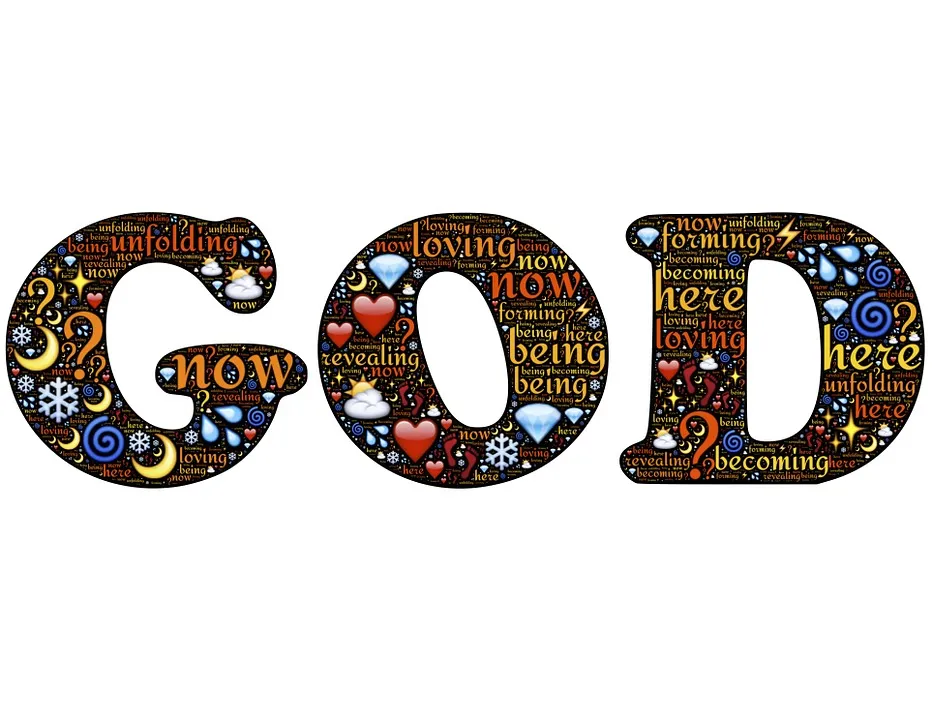As humans, we all make mistakes and harbor guilt, leading us to question whether we can ever be forgiven for our missteps. This is where faith and religion come into play, allowing us to seek solace and forgiveness for our transgressions. In this article, we explore the concept of forgiveness, the power of repentance and atonement, and how to find redemption and spiritual renewal. Read on to discover how you can overcome your guilt and move forward towards a more fulfilling life.
Understanding the Concept of Forgiveness in Religion

Introducing the concept of divine forgiveness can be complex because it touches on spiritual themes and personal beliefs. However, when exploring questions like “will God forgive me?”, it’s worth considering the principles that underpin the concept of forgiveness in religion.
Firstly, forgiveness is often seen as an act of mercy whereby God grants pardon to those who repent for their sins. This means that the act of confessing one’s wrongdoing and requesting divine mercy is the first step towards receiving forgiveness.

Secondly, the idea of atonement is crucial in understanding the role of forgiveness in religion. This involves reconciling oneself with God and seeking to make amends for any harm caused. This can include performing acts of penance, volunteering, or making restitution for any wrongdoing.
Thirdly, the concept of divine grace is often employed to explain how God offers forgiveness. Grace refers to unearned, undeserved favor bestowed by God, and is often seen as the key to redemption.
While these principles help us understand the concept of forgiveness in religion, it’s important to note that different belief systems may approach forgiveness differently. Some religions may focus more on self-forgiveness or the importance of moral values in seeking redemption. Nonetheless, understanding the principles behind divine forgiveness can be helpful for those seeking peace and spiritual renewal.
Here are some practical tips that can help you live in line with these religious tenets of forgiveness:
- Practice regular self-reflection and acknowledge when you have done wrong.
- Confess your wrongdoing and seek forgiveness from those you have wronged.
- Make amends and show kindness to others as a way to atone for your actions.
- Pray or engage in other spiritual practices as a way to seek God’s mercy and grace.
- Cultivate self-compassion and self-forgiveness in order to move past feelings of guilt and shame.
By living in line with these principles, you can embrace the power of forgiveness in your own life and find peace of mind along the way.
The Power of Repentance and Atonement
Repentance and atonement are fundamental concepts in many spiritual traditions, including Christianity, Judaism, and Islam. The act of repentance involves confessing one’s sins and seeking forgiveness, while atonement refers to the process of making amends and seeking divine grace.
In Christianity, repentance is essential for salvation and is often accompanied by the sacrament of confession. Through confession, believers can receive absolution and be cleansed of their sins. This act of contrition is a necessary step towards reconciliation with God and the attainment of grace and redemption.
Judaism teaches that repentance, or Teshuva, is an ongoing process of self-evaluation and spiritual renewal. It involves acknowledging one’s wrongdoing, seeking forgiveness from those who have been harmed, and resolving to make amends and lead a better life. Atonement, or Kappara, can be achieved through acts of charity, prayer, and fasting during the high holy days.
In Islam, repentance, or Tawbah, involves turning away from sinful behavior and seeking forgiveness from Allah. This process requires sincere regret, confession, and the resolve to change one’s ways. Atonement can be achieved through good deeds and charitable acts, as well as completing the required prayers and pilgrimage.

The act of repentance and atonement is a powerful tool for spiritual growth and transformation. It requires humility, self-reflection, and a willingness to seek forgiveness. Through this process, individuals can find inner peace and release themselves from the burden of guilt and shame, paving the way for spiritual renewal and a closer relationship with the divine.
In summary, the power of repentance and atonement cannot be underestimated in religious traditions. It is a necessary step towards salvation, spiritual growth, and divine forgiveness. By acknowledging our sins, seeking forgiveness, and making amends, we can find inner peace and a renewed sense of purpose in life.
Dealing with Guilt: Letting Go and Moving Forward
Guilt is a natural human emotion that arises from knowing that we have done something wrong. It is an important emotion because it propels us towards change and helps us to improve our behavior in the future. However, sometimes we may feel guilty about things that we cannot change, or we may struggle to let go of the guilt even after we have made amends. This is where we need to learn how to deal with guilt by learning to let go and move forward.
Here are some ways to deal with guilt:
-
Acknowledge the feeling: The first step to dealing with guilt is to acknowledge the feeling. Recognize that you feel guilty about something and accept that it is a perfectly normal human emotion.
-
Identify the root cause: Once you have acknowledged your guilt, try to identify the root cause of it. What did you do or say that made you feel guilty? Is there something you can do to make amends?
-
Take action: If there is something you can do to make amends, take action. Offer an apology or make things right in any way you can.
-
Practice self-compassion: Remember that you are only human and that everyone makes mistakes. Be kind to yourself and practice self-compassion.
-
Let go: Once you have done everything you can to make amends, it is time to let go of the guilt. Holding on to guilt will only weigh you down and prevent you from moving forward.
-
Practice gratitude: Instead of focusing on your mistakes, try to focus on the things in your life that you are grateful for. Gratitude can help to shift your focus away from negativity and towards positivity.
-
Seek forgiveness: If the guilt is related to a relationship with another person, seek their forgiveness. It may not be easy, but it is an important step towards healing and moving forward.
By learning to let go of guilt, we can free ourselves from the burden of negative emotions and move forward towards a more positive future. It is important to remember that forgiveness is a process, but with practice and patience, it is possible to find peace and redemption.
Finding Inner Peace and Spiritual Renewal through Prayer
Finding inner peace and spiritual renewal is one of the main reasons why people turn to prayer and spirituality. Whether it is through religious traditions or personal beliefs, prayer has the power to bring clarity and calmness to the mind, heart, and soul. In this section, we will discuss how prayer can help you find inner peace and spiritual renewal.
« Unlocking the Symbolic Meaning of Jesus’s Hair Length in Religious Art and Cultural Beliefs
Uncovering the Mysteries of Threshing Floors: A Look into Ancient Agricultural Practices »
Prayer is a form of communication with a higher power, be it God, the universe, or one’s inner self. It is an opportunity to express gratitude, ask for guidance, and seek forgiveness. Through prayer, one can connect with a higher power and gain a sense of purpose and direction in life. This connection can help us find inner peace, especially during challenging times.
Through prayer, we can also find the strength to face our challenges and overcome them. It is said that God never burdens us with more than we can handle, and through prayer, we can find the courage to face our challenges head-on. This sense of strength and resilience can help us find peace of mind and move forward in life.
Prayer can also help us find spiritual renewal. When we engage in prayer regularly, we develop a stronger connection to our higher power and our spiritual selves. This connection can deepen our faith, increase our sense of hope, and help us live in alignment with our values and beliefs. Prayer can also help us let go of negative emotions and thoughts, which can block our spiritual growth.
Self-reflection is also a key element of prayer. Through prayer, we can reflect on our actions, thoughts, and emotions and seek guidance on how we can improve ourselves and live a more fulfilling life. This self-reflection can lead to inner transformation and help us become better versions of ourselves.

In conclusion, prayer is a powerful tool for finding inner peace and spiritual renewal. It can help us connect with a higher power, find the strength to face our challenges, and deepen our faith and spirituality. Through prayer, we can let go of negative emotions and thoughts and become better versions of ourselves. If you are seeking inner peace or spiritual renewal, consider incorporating prayer into your daily routine and see the positive effects for yourself.
Self-Forgiveness: The First Step towards Divine Forgiveness
Self-forgiveness is the act of accepting oneself for past mistakes or sins and moving forward with a renewed sense of purpose and inner peace. It is a vital step towards achieving divine forgiveness and spiritual growth. When one harbors feelings of guilt and self-blame, it can hinder their ability to connect with a higher power and experience inner transformation. Thus, self-forgiveness is an essential ingredient in finding peace of mind and spiritual healing.
Here are some ways to practice self-forgiveness:
-
Accept Responsibility: One of the first steps towards self-forgiveness is accepting responsibility for one’s actions. Acknowledging the mistakes made and accepting the consequences is crucial. Blaming others or making excuses will only further prolong the journey towards self-forgiveness.
-
Let go of Guilt: It is essential to let go of feelings of guilt and shame before one can practice self-forgiveness. Holding on to guilt can negatively impact mental and emotional health. It’s vital to realize that everyone makes mistakes and that it is possible to overcome them.
-
Seek Support: It takes a lot of courage and strength to forgive oneself. Speak to a trusted friend or religious leader who can offer guidance and support. Joining a support group can also provide a sense of solidarity with others on a similar journey.
-
Make Amends: Sometimes, making amends with those wronged by past actions can help with the process of self-forgiveness. It is a way to accept responsibility, show remorse, and seek forgiveness.
-
Embrace Spirituality: Inner peace and spiritual renewal are essential to self-forgiveness and growth. Embracing religious beliefs, moral values, and connecting with a higher power through prayer and meditation can aid in the process of inner transformation.
The journey towards self-forgiveness can be challenging, but the rewards are worth it. By practicing self-forgiveness, one can let go of past mistakes, find peace of mind, and connect with divine forgiveness.
Accepting God’s Grace: The Key to Salvation and Redemption

As believers, we often struggle to forgive ourselves for our mistakes. In the process, we tend to forget the true essence of forgiveness- the mercy of God. While we may find it hard to accept that we are worthy of forgiveness and redemption, God’s grace is unconditional and all-encompassing.
To receive forgiveness, we must be willing to confess our sins and turn away from them. It is essential to acknowledge our mistakes and seek forgiveness to start on the path of reconciliation and redemption. While confession and repentance are necessary, it is essential to remember that true forgiveness comes from God. It is through His divine mercy that we can experience spiritual healing and renewal.
Once we receive God’s forgiveness, we must also choose to forgive ourselves and let go of the guilt and shame associated with our past mistakes. Forgiveness can bring about a sense of peace, allowing us to move forward while honoring the lessons we learned from our past mistakes.
It is crucial to understand that forgiveness is not a transactional act. Rather, it is an ongoing process of inner transformation and spiritual growth. Throughout this process, we can rely on God’s grace to guide us towards acceptance and redemption. We must also remember that this journey is personal and unique to each person, and there is no one-size-fits-all approach.
By accepting God’s grace, we can overcome our sins and shortcomings, experience inner peace, and continue to grow spiritually. Through prayer, faith, and self-reflection, we can honor our religious beliefs and moral values while letting go of guilt and embracing divine forgiveness.

In conclusion, accepting God’s grace is the key to salvation and redemption. By confessing our sins, seeking forgiveness, and committing to growth, we can experience spiritual renewal, find inner peace, and honor our beliefs and values. Remember, forgiveness is a journey, not a destination. It requires patience, self-reflection, and the willingness to let go and move forward.
Conclusion: How to Embrace Forgiveness and Live a Fulfilling Life
It is never too late to seek forgiveness and redemption for your sins. Through the power of repentance, atonement, and prayer, you can find peace of mind, spiritual healing, and divine forgiveness. Here are some practical tips on how to embrace forgiveness and live a fulfilling life:
-
Acknowledge your mistakes and take responsibility for your actions. This is the first step towards genuine repentance and atonement. Recognize the harms or wrongs you have caused others and try to make amends or offer apologies if possible.
-
Seek guidance and support from a religious leader, mentor, or therapist. Talking about your concerns and fears with someone who has experience in dealing with emotional and spiritual issues can be very helpful. They can help you understand and apply the principles of forgiveness, self-compassion, and grace in your life.
-
Practice mindfulness and meditation to cultivate inner peace and awareness. Slow down and take the time to reflect on your emotions, thoughts, and actions. This can help you connect with your deeper spiritual values and motivations, and enhance your sense of compassion and forgiveness towards yourself and others.
-
Engage in acts of kindness and service towards others. By showing love, generosity, and empathy towards those in need or suffering, you can cultivate a sense of purpose, gratitude, and fulfillment in your life. This can also help you see the positive impact you can have on the world and inspire you to continue on your journey towards redemption and spiritual growth.
-
Stay committed to your faith and moral values. Forgiveness, redemption, and grace are core values of many religious beliefs, and can provide a powerful source of motivation and guidance in your life. By staying connected to your spiritual community, attending worship services, and engaging in acts of devotion, you can strengthen your faith and sense of purpose in life.
Remember, forgiveness is a journey, not a destination. It takes time, effort, and resilience to let go of guilt, shame, and resentment, and embrace a life of peace and redemption. But with the right mindset, resources, and support, you can transform your life and find the divine mercy and love that you seek.


















